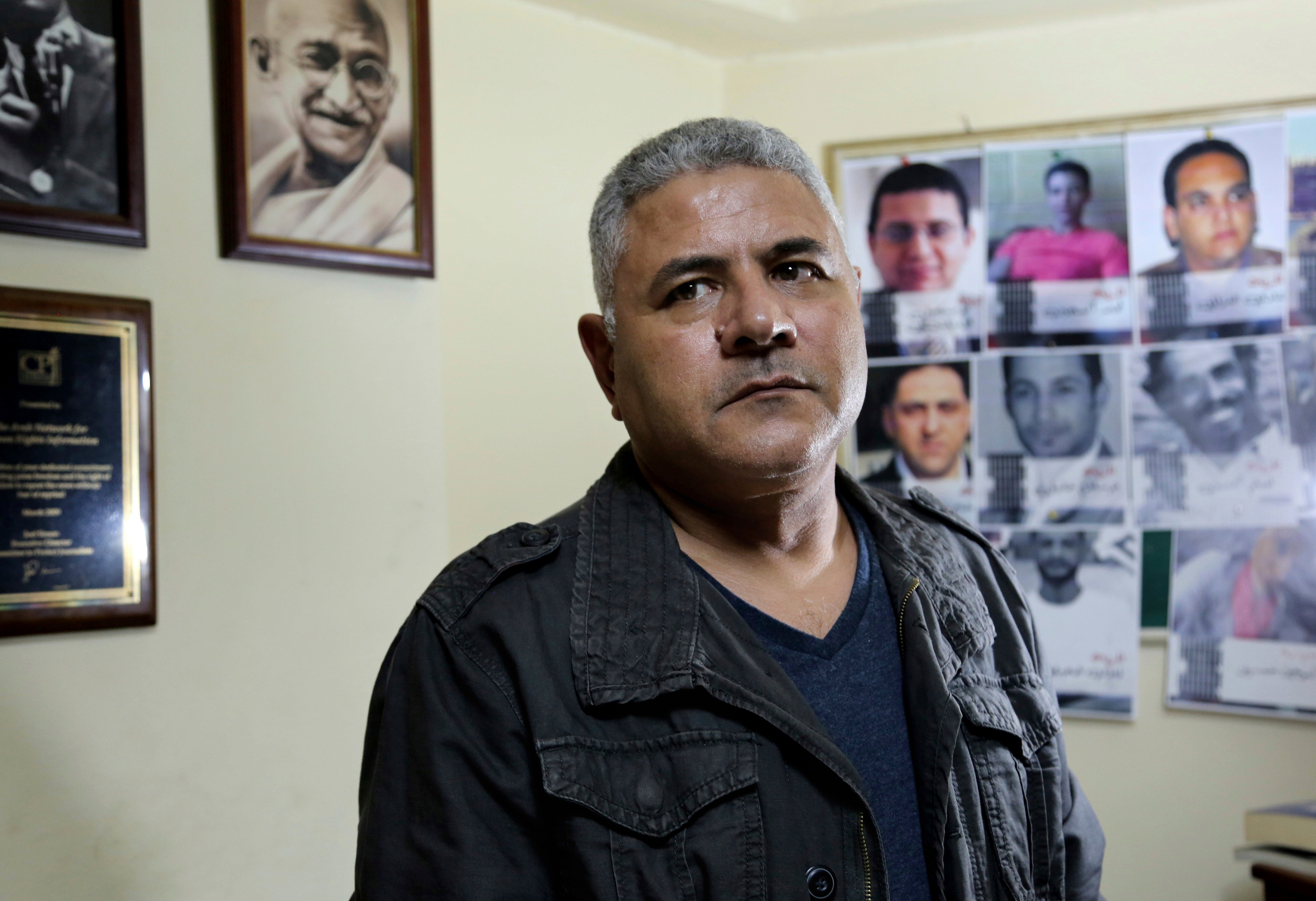Egyptian rights group closes, cites government persecution
One of Egypt’s last independent human rights organizations says in a statement it has closed down, citing government persecution

One of Egypt’s last independent human rights organizations has closed down, a statement by the group said Monday, citing government persecution.
Egypt’s government has engaged in a widespread crackdown on dissent for years that has stifled many of the country’s civil society groups and jailed thousands.
The Arabic Network for Human Rights Information, an Egyptian organization, was founded in 2004 by a team of lawyers and activists. It documented violations against citizens, journalists and political prisoners in Egypt and the region. It also followed the increasing government intimidation and targeting of human rights workers and others.
But laws that made many of ANHRI's operations illegal have forced the organization to shut down, Executive Director Gamal Eid said in the statement. He said the group's workers had been arrested, intimidated and physically assaulted by security forces.
“We continue to be lawyers who have a conscience, and as individual, independent human rights defenders will work side by side with the few remaining independent human rights organizations, independent human rights defenders and the entire movement calling for democracy,” he wrote.
A government media officer did not respond to a request for comment on the organization’s statement.
Many of those who have been imprisoned in recent years are Islamists but they also include secular activists who were involved in the 2011 Arab Spring uprising that toppled the country’s longtime autocrat Hosni Mubarak
As a lawyer, Eid represented some of the most prominent secular detainees. A court ordered his assets frozen and has banned him from traveling since 2016.
Since rising to power in 2013, President Abdel Fattah el-Sissi has overseen the post-uprising crackdown and outlawed the Muslim Brotherhood labeling it a terrorist organization. The country is ranked among the world’s worst jailers of journalists, along with Turkey and China, according to the nonprofit Committee to Protect Journalists